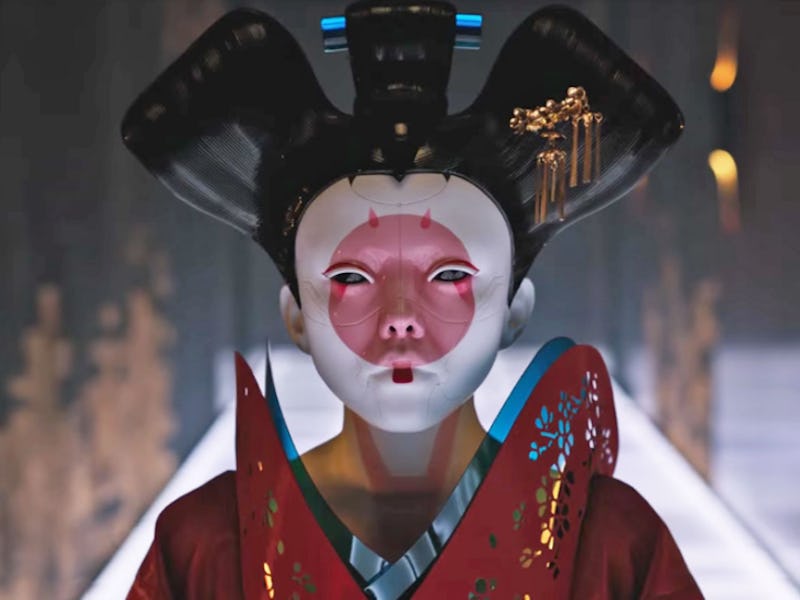'Ghost in the Shell' Will Explore a Fantastic Biohacking Future
But the questions – like "What does it mean to be human?" – are relevant today.

The live-action film adaptation of the classic Japanese movie and anime, Ghost in the Shell will most likely be forever marred by an ugly whitewashing scandal, but as the March 2017 release date draws near, we’re learning more about the big questions the filmmakers are attempting to tackle in their vision of the cyberpunk world. Specifically, what does it mean to be human when biohacking is the norm?
The question isn’t as far-fetched as you might think. Biohacking and transhumanism are growing movements, and the idea of cybernetic enhancements are much less outlandish than when the original manga was first published in 1989. Although, some advancements have gone in different directions than Ghost in the Shell first predicted. We won’t be seeing any super-fast fingers that split into smaller fingers to type, according to some of the film’s producers, who told Collider what fans can expect from their take on the source material.
Nowadays, you'd just ask Siri to do it for you.
“It’s a world where people are enhanced,” executive producer Michael Costigan explained. “What is evolution? Who is a human and who is enhanced? What are these different stages?”
“If you’re enhanced there is a lot of that idea of, ‘What would you want to be in that future?’” he continued. “You can learn something immediately or do anything. The possibilities are endless.”
In Ghost in the Shell’s future, technology has advanced to the point where it’s commonplace for people to replace parts of their body with cybernetic parts — or in severe cases (like the main character, the Major), their entire bodies. It’s a little extreme, but the ethical and philosophical questions that such alterations bring are very real, and Costigan says the movie will explore those tough questions.
It’s a future where people are enhanced and have used technology, and it’s also exploring when that works and when that can be manipulated and used. It’s, frankly, everything that we’re dealing with and questioning because there aren’t answers so that’s why I think the movie is so relevant right now. Look at all the great things and access you can have. If you have it, what can you do with it? You can do great things with it. But if you can take the same technology and do bad things with it, it can be dangerous. Who is monitoring that? That is something the movie gets to delve into.
It seems, however, like Ghost in the Shell will be optimistic about our transhuman future.
“Some of the topics in sci-fi that I like the least are ones that suggest that technology will steam-roll us and that were quickly losing control of our fate,” producer Avi Arad told Collider. “I think this movie asserts a sense that we can control our humanity. Technically [the Major] is the least human being in the world, but she also cares so much about her humanity.”
“One of the big things in this movie is about the fact you maintain your humanity by choosing to,” he continued. “That doesn’t mean that it’s easy and simple, but it’s a story about people holding onto their humanity.”